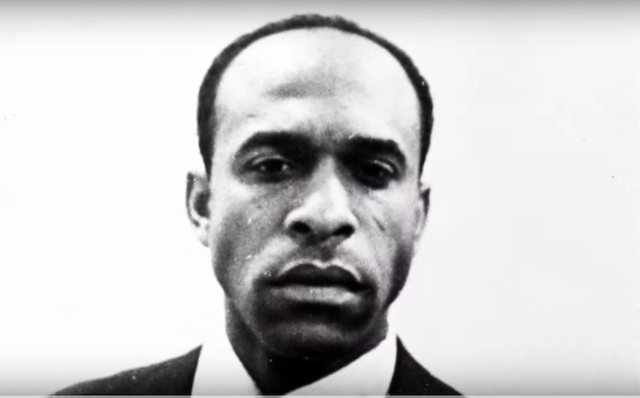Few writers have had as profound an impact on critical race theory as Frantz Fanon. Born in 1925 on the French colony of Martinique, the psychiatrist, philosopher, writer and revolutionary published two seminal books on colonialism and Black consciousness,“The Wretched of the Earth” and “Black Skin, White Masks,” before he died of leukemia at age 36.
In particular, “Black Skin, White Masks” breaks ground by examining the experience of race under colonization through a blend of autobiographical, philosophical and psychological analysis. The book makes important connections between mental illness and the experience of systemic oppression.
That’s why activists are asking the Michigan Department of Corrections (MDOC) why it has banned the seminal text from its prison libraries on grounds that it “advocates racial supremacy.” Among the other 42 books banned for this reason are Adolph Hitler’s autobiographical “Mein Kampf” and “The Turner Diaries,” the White nationalist novel that inspired Timothy McVeigh to bomb the Alfred P. Murrah Federal building in Oklahoma City, Oklahoma.
“Prison systems have long banned books that seek to inspire and intellectually liberate Black people,” says Justin Hansford, executive director of the Thurgood Marshall Civil Rights Center at Howard University School of Law. “It is part of the deeply entrenched, systemic injustice that exists in our criminal justice system.” In late June, Hansford, along with the Michigan ACLU and Fanon’s daughter, Mireille Fanon-Mendès France, sent a letter to the MDOC demanding that the book be removed from the banned list or face legal action.
The letter, addressed to MDOC director Heidi Washington, contends that the ban violates the United States and Michigan state constitutions and the agency’s internal policies that direct it to “provide humane and protective custodial care, [and] rehabilitative opportunities.” Signed by a number of scholars including Cornel West, the letter also notes that incarcerated people do not abdicate their First Amendment rights upon conviction. Colorlines spoke to Fanon’s daughter, an activist and scholar in her own right, about the MDOC ban and her father’s legacy.
rnt
rntWhat was your reaction to the MDOC ban on “Black Skin, White Masks”?
I was surprised. It is incomprehensible that MDOC has banned a book that is not only educational but restorative.
What do you make of MDOC labeling the book as “advocating racial supremacy” and listing it along with racist texts such as “Mein Kampf” and “The Turner Diaries”?
This type of argument is very often used by those who are afraid that their White privileges will be questioned by those they racialize and exclude. This prohibition [actually] shows how Fanon's thought [is] liberating, even emancipatory.
How did you come to partner with Howard law and ACLU of Michigan?
I brought the idea to Justin Hansford [at Howard] about two years ago, after I read in this [Muckrock] article about how the book was banned in Michigan. Justin then contacted Michael Steinberg at the ACLU and asked if he wanted to join in. We began working on it in 2018. Three semesters of Howard law students drafted the letter, under the supervision of Michael and clinical professors.
Have you ever heard from incarcerated or formerly incarcerated people about the influence of your father’s work?
Yes, and in different parts of the world: Palestine, U.S.A., Mexico, Chile, France, Algeria. All were incarcerated or formally incarcerated people [telling] me the reading of “Black Skin, White Masks” brought them strength.
What do you want readers to know about the legacy of your father’s work and its relevance today?
My father was a thinker and man of action. Fanon is surprisingly topical in his political, psychological and social analysis. [It] goes beyond the context in which it was developed. Neither an apology for violence nor a call to revenge, Fanon's thought is that, This is the exaltation of the freedom and universality of the struggles for justice. One must question the colonial [nature] of the power that banned this book. We must work on its deconstruction and decolonization.
Sharda Sekaran is a communications strategist, writer and human rights advocate who has worked for social progress for most of her life. Her work has appeared in a number of outlets, including Colorlines, Huffington Post, Al Jazeera, Alternet, Mash-Up Americans, Ebony.com, Black Enterprise, ATTN: and CNN.
